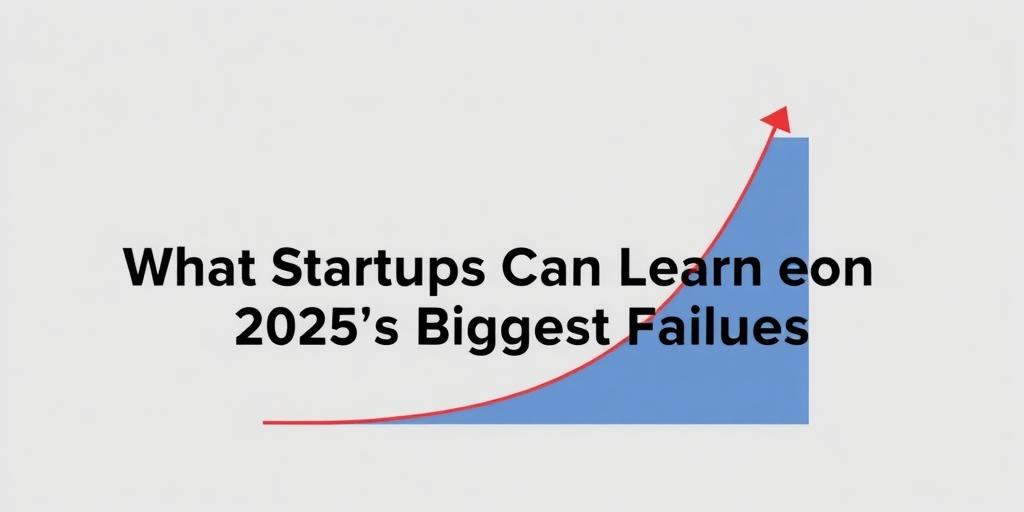What Startups Can Learn from 2025's Biggest Failures
Hey everyone! So, 2025 – what a year, right? Some startups absolutely soared, while others… well, let’s just say they didn’t exactly stick the landing. I’ve been digging into the post-mortems of some of the biggest flops, and you know what? There’s a ton we can learn from their mistakes. Seriously, it's like a crash course in avoiding disaster!
First off, let's be real: market research is crucial. I mean, it's not exactly rocket science, but so many startups dive headfirst into the deep end without properly understanding their target audience. One company I looked at – they thought everyone wanted their super-niche, artisanal pickle-flavored kombucha. Spoiler alert: they were wrong. Majorly wrong. Lesson learned: don’t assume your brilliant idea is universally brilliant. Do your homework!
Another big one? Cash flow management. This is where so many startups stumble. It's easy to get caught up in the excitement and overspend on things that aren't essential. I'm talking fancy office spaces, extravagant team-building events… you know, stuff that looks good on Instagram but doesn't necessarily contribute to the bottom line. Been there, done that. Let's just say I learned the hard way that ramen noodles are a surprisingly versatile food group.
And then there's the issue of pivoting. Some startups are too stubborn to change course when things aren't working. They cling to their original vision, even when all the data suggests it's a dead end. It's like that time I tried to learn to play the banjo. I was sure I'd be the next Bill Monroe. I wasn't. Sometimes, you've got to admit defeat and try something new. It's not giving up; it's adapting.
One unexpected thing I noticed? A lot of these failed startups lacked a strong company culture. I know, I know, it sounds soft, but a positive and supportive work environment is vital for innovation and productivity. A toxic workplace? That's a recipe for disaster. Trust me on this one.
So, what's the takeaway here? Don't be afraid to fail. Seriously, failure is a part of the process. The important thing is to learn from your mistakes and keep iterating. Analyze what went wrong, adapt your strategy, and keep pushing forward. That's how you build a successful startup. And hey, maybe even avoid becoming a case study in what not to do!
Have you tried any of these approaches? Would love to hear your take!









